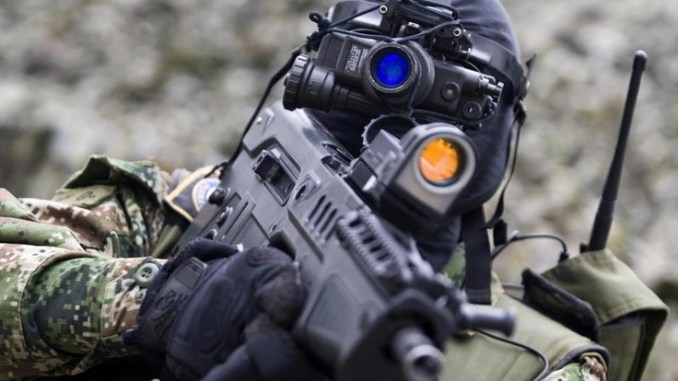Indian military crack unit operatives roaming the streets of Harare
SUSPECTED former Indian army officers, who have been operating in Mozambique’s troubled northern province of Cabo Delgado region, have reportedly settled in Zimbabwe, where they are allegedly operating after posing as “investors” in different sectors of the economy, a dossier sent to the Office of the President and Cabinet has revealed.
NewsDay understands that the Office of the President and the country’s immigration department have since launched a crackdown on the military unit, deporting hundreds of Indians who had sneaked into the country without proper documents.
Former Cabinet minister and special adviser to President Emmerson Mnangagwa, Jorum Gumbo, confirmed that he facilitated a meeting between the former military men and the President, adding that that was the sole role he played.
“Yes, the Indians saw the President. My role was just to facilitate, I act as a secretary to the President. These guys said they wanted to invest in a brewery, whatever they did after that I wouldn’t know,” Gumbo said.
According to the dossier, one of the ex-army men, Sudhu Sarup Singh, hung up his mobile phone before NewsDay could get a comment from him.
According to documentation, Singh was given a temporal permit in July last year.
On the permit, Singh was recorded as an employee at NV Mining in Zimbabwe.
Indian embassy attaché consular Rajin Kapoo, who refused to comment on the matter, said the ambassador was in India.
“I cannot comment on the issue, the ambassador is in India. This number is for emergency,” she said
The Central Intelligence Organisation (CIO) has reportedly confiscated two top-of-the-range vehicles the former Indian soldiers were using.
The confiscated vehicles are a white Toyota Fortuner GD-6 (AGA 2524) and a grey Ford Ranger (AGE 2419) with “Indian Army, Special Forces” pasted on their backs.
The Toyota Fortuner GD-6 has “We Dare The Impossible” inscribed on the top of its back panel, while the Ford Ranger has a sticker written “We Are The Fearless”.
CIO sources said the country’s intelligence unit was investigating how the vehicles were imported into the country.
The former Indian soldiers’ first port of call after coming into the country was said to have been the Reserve Bank of Zimbabwe (RBZ), where they initially sought approval to set up an ethanol plant.
“These individuals made their way into the country after their efforts at ending unrest in Cabo Delgado, Mozambique, failed,” said a source who shared details and supporting documents of their enterprise.
“They got approval, but soon after proceeded to start seeking financial assistance from the government to set it up, to which (RBZ governor John) Mangudya said no,” the source added.
“They are now into gold mining, are looking at lithium and go around in branded vehicles which indicate that they are, indeed, members of the Indian army’s Special Forces.
“Even the CIO is investigating these guys as there seems to be no link between them and any other Zimbabwean authority besides (the named former minister).
“Their operation here makes it seem like Zimbabwe has become a Wild-Wild West, where all rogue characters can still come, do what they want, make a living and leave.”
The unit has also been accused of illegally supplying India-manufactured sex-enhancing drugs to vendors across the country.
Last Wednesday, the Medicines Control Authority of Zimbabwe (MCAZ) raided and confiscated illegal medicines from six shops in Caledonia, close to Old Tafara.
Forfeited were unregistered medicines, expired drugs and even registered medicines being sold unlawfully in the Gazebo area of Caledonia, Mabvuku.
In a statement, MCAZ director-general Richard Rukwata said this raid was done in partnership with the Zimbabwe Republic Police Drug and Narcotics Unit.
“Today, the Medicines Control Authority of Zimbabwe, in collaboration with the Zimbabwe Republic Police Drugs and Narcotics Division, conducted a successful blitz raid in the Gazebo area of Caledonia, Harare. The operation targeted unlicensed shops suspected of unauthorised dealing in medicines and other pharmaceutical products,” he said.
Rukwata said people manning the unlicensed shops were arrested.
“During the raid, six unlicensed shops were inspected, leading to the discovery of unregistered medicines, expired drugs, and even registered medicines being sold unlawfully. All the shops were manned by unlicensed individuals.
“As a result of our joint efforts, six suspects were apprehended, including one supplier of these pharmaceutical products,” he said.
Source



